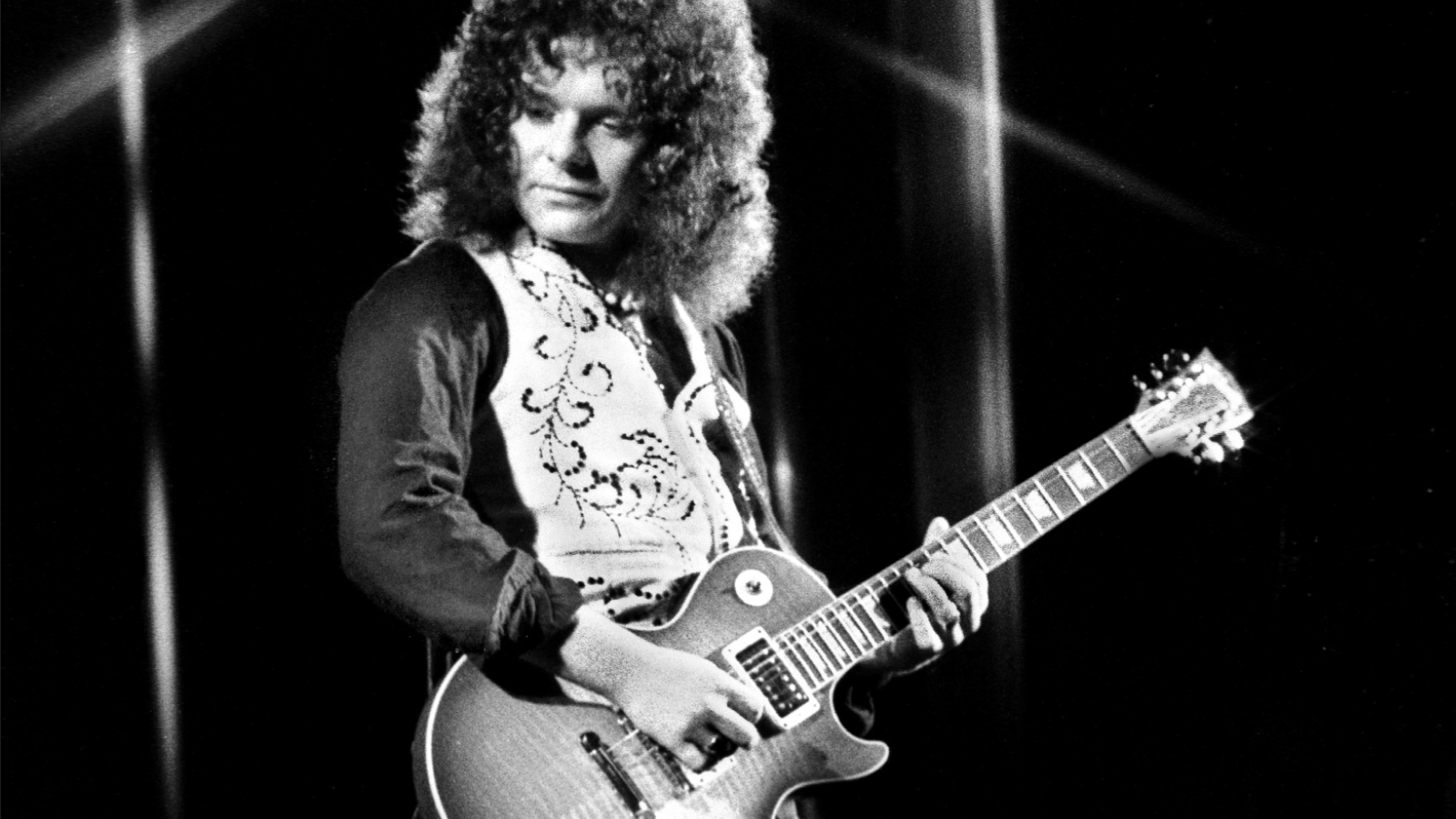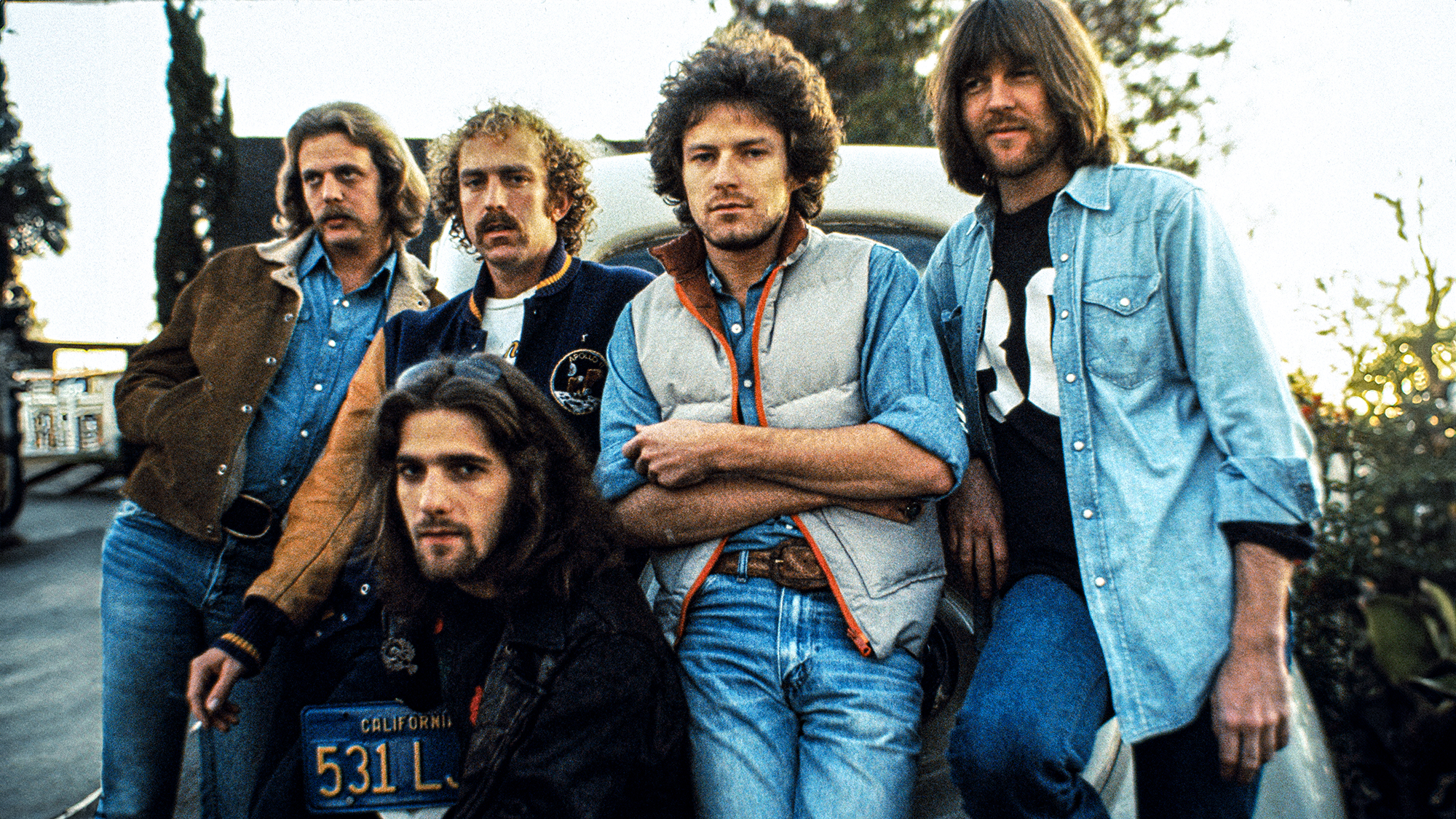10 Under-the-Radar Albums Every Guitar Player Needs to Hear
From Chet Atkins and Merle Haggard to Jellyfish and the Creation, these hidden gems resonate with just as much passion and flair as the stock desert-island disc picks

All the latest guitar news, interviews, lessons, reviews, deals and more, direct to your inbox!
You are now subscribed
Your newsletter sign-up was successful
The legacy of recorded guitar does not rest solely upon the discographies of Hendrix, Clapton, Beck, Page and other six-string deities. Nor does it always embrace established classics, technical masterpieces and mammoth hits.
Deep in the grooves and digital data streams of under-appreciated and forgotten releases are moments of brilliance that deserve another chance to inspire legions of guitarists.
These records were produced by heroes and wackos alike, and they resonate with just as much passion as many of the annointed albums that make up the typical guitarist’s list of desert-island discs.
Of course, there are thousands of closet classics out there, but there’s scant chance of cataloging them all. So just for fun, here are ten albums graced with performances every guitarist should assimilate into their trick bags...
1. Chet Atkins 'Hometown Guitar' (1968)
A great guitar album should inspire you musically, but it’s hard to play when your jaw is on the floor. Despite the humble cover shot, this obscure record contains cocky, mind-boggling licks that will leave you asking, “How did Chet Atkins make it sound so easy?”
In the modal theme to “Get On with It,” for example, Mr. Guitar peels off spectacular nylon-string cascades with such casual precision, it’s almost comical. He might as well be shuffling a deck of cards.
Another flabbergaster is the down-home “Blue Angel.” It sounds like Paganini playing a two-step, as Atkins splices together an action-packed melody using fretted notes and open strings.
All the latest guitar news, interviews, lessons, reviews, deals and more, direct to your inbox!
Soon you realize you’re hearing a player who transcended mere chops. What Atkins brought to the guitar is closer to the dedication and grace you see in Olympic gold medalists. But don’t worry – these licks aren’t impossible. They’re just something to shoot for. Like the moon.
2. Eddie Boyd '7936 South Rhodes' (1968)
Pianist Eddie Boyd may be one of the lesser-appreciated icons of American blues, but sparks certainly flew during this landmark, six-hour session that paired him with the members of Fleetwood Mac (minus Jeremy Spencer).
The real hit here, of course, is guitarist Peter Green, who smolders with soulful intensity on the dozen Boyd-penned songs. Green’s spirited riffing and lyrical solos – which often feature his celebrated out-of-phase Les Paul tone – elevate the music in spite of Boyd’s notoriously somber lyrics and rather plodding piano style.
The result is an album that can be appreciated by guitar nuts and blues historians alike.
3. Larry Carlton 'Last Nite' (1987)
You’ll often find L.A. hotshots trading licks at the cozy Baked Potato in North Hollywood. Sadly, the only evidence of most of these magical jams are the next morning’s hangovers and ringing ears. Well, here’s one that didn’t get away. From the very first lick, you can tell Larry Carlton is having one of those inspired nights where everything goes right.
The real treat is “The B.P. Blues,” a slow-burning 12-bar jam that climaxes with dazzling fretboard fireworks. ‘‘At least once a night, I play a straight-ahead, down-home blues,” Carlton says in the liner notes. “It’s good for the soul.” It’s also good for your soul, as you lose yourself in that impossibly creamy guitar tone. Even Carlton’s softest notes seem to sustain forever. And amazingly, the louder and busier he gets, the better he sounds.
4. James Burton & Ralph Mooney 'Corn Pickin’ and Slick Slidin’' (1969)
‘‘Burton and Mooney. You know the names, but not the team. It’s new!” exclaims the liner notes to this often-overlooked prize. By the time Corn Pickin’ and Slick Slidin’ was released, James Burton and pedal-steel wizard Ralph Mooney had already graced hundreds of records between them.
Com Pickin’ and Slick Slidin’ finds the duo playing instrumental versions of country classics such as “Your Cheatin’ Heart” and “I’m a Lonesome Fugitive,” as well as a few original compositions.
Although Burton’s trademark chicken-pickin’ licks make an appearance (the track “Moonshine” may contain his duckiest phrasing ever), it’s his lyrical Dobro work that takes center stage. Corn Pickin’ and Slick Slidin’ is about tasty interpretations of classic tunes by two legendary players.
5. The Creation 'The Complete Collection, Volumes I and II (1966-68)' (2001)
Other players got the glory for their feedback excursions, but Creation guitarist Eddie Phillips is the lost master of noise-splattered squeals, squalls and psychotic freak-outs. He was so over the top that Pete Townshend once asked him to join the Who as second guitarist. One can only imagine the feral cacophony those two could have launched.
The Creation got a wink from filmmaker Wes Anderson in 1998, when he used a snippet of the band’s “Making Time” as the soundtrack to the main character’s thought process in Rushmore. It was 15 seconds of riff majesty that moviegoers were humming on the way out of the theater.
The Complete Collection shows you what Phillips could do with a full two-minute pop song.
6. Free 'Free Live' (1971)
The late Paul Kossoff was arguably the most underrated guitarist of the late-Sixties British blues boom. More aggressive than Clapton and Green, yet more lyrical than rockers such as Mick Ralphs, Kossoff was a musical bridge between traditional electric blues and riff rock.
Although their studio records were heavy on attitude, Free Live unleashes a tremendous dose of strut and swagger. Kossoff’s guitar is absolutely huge throughout, and you’ll quickly realize how big an influence he was on players such as Angus Young and Gary Moore.
Double-stop cries, super-wide vibrato and absolutely killing tone were just a few of Kossoff’s strong points. Free Live also proves that Free was one of the heaviest, groovingest and most ass-kicking rock bands ever.
7. Robben Ford 'The Inside Story' (1979)
Robben Ford was a veteran sideman with Tom Scott & the L.A. Express, Jimmy Witherspoon, Joni Mitchell and George Harrison when he cemented his status as a solo artist with this fusion-oriented album. But unlike the syrupy L.A.-jazz releases of the era, Ford’s music simmers with earthy soul. Even when stretching his newfound jazz muscles on such soaring cuts as “For the One I Love,” “There’s No One Else” and “Far Away,” Ford’s gutsiness remains intact.
It’s hard to say how much of the album was shaped by the production hand of Steve Cropper, but the R&B guitar legend deserves credit for presenting Ford as a cutting-edge jazz artist with wailing blues chops. On “North Carolina,” for example, Ford wraps up his solo in a riveting duet with harp player (and brother) Mark Ford. Another high point is “Tee Time for Eric,” a funky, up-tempo number with tricky changes that Ford tackles with astonishing skill.
The Inside Story is definitely a high-water mark of Ford’s affair with fusion, and it’s one jazz-rock record that will never sound dated.
8. Merle Haggard 'The Instrumental Sound of Merle Haggard’s Strangers' (1969)
Merle Haggard was the hottest thing in country in 1969, and this all-instrumental album gave his band a much deserved opportunity to strut its stuff. And, man, was there a lot to strut.
The coolest cuts feature guitarist Roy Nichols and steel-player Norm Hamlet, who demonstrate the fine art of duet playing on “Leavin’ Phoenix,” “Poppin’ Corn,” “Hammin’ It Up,” “Whooper Snooper” and ‘‘A Hop and a Skip.” Both players were at the top of their game at this point (thanks, in part, to Haggard’s letting them stretch out so much onstage), and you’re treated to megadoses of Nichols’ signature string bending and chicken pickin’.
Nobody makes albums like this anymore, and we’re just damn lucky that someone at Capitol Records was willing to let Hag’s road band have its way in the studio.
9. Jellyfish 'Spilt Milk' (1993)
This underappreciated effort from pop-rock historians Jellyfish contains some of the best tunes that the Beatles, Badfinger and the Beach Boys never wrote. And each one is full to bursting with great guitar, courtesy of Lyle Workman and Jon Brion.
Relying on a huge collection of vintage gear (“We had Gibsons, Fenders, Rics, Gretsches, Voxes, Marshalls, Hiwatts, Magnatones and more,” recalls Workman), Brion strolls down classic rock’s memory lane with righteous Queen-isms in “Joining a Fan Club,” and Fab Four–to-the-bar AC30 spanks in “Sebrina, Paste and Plato.”
Workman works similar magic in “The Ghost at Number One,” cuts out-of-control feedback tracks in ‘‘All Is Forgiven,” and lays down glorious acoustic and tasteful electric parts in “Glutton of Sympathy.” His finest moment might be the Harrison-esque slide solo in “New Mistake,” which was played on an ES-335 plugged into a vintage Gibson combo.
“I know that [Jellyfish founders] Roger Manning and Andy Sturmer didn’t set out to make just another pop record,” Workman says. “They wanted Spilt Milk to be an important musical statement. Although the sales were disappointing, the album succeeds from a musical standpoint.”
10. Eric Johnson 'Seven Worlds' (1998)
When Eric Johnson’s Grammy-nominated debut, Tones, came out in 1986, it signaled to the world what music nuts in Austin, Texas, had known for years: A new guitar genius was on the loose. What most people still didn’t know, however, was that Johnson had recorded a solo album between 1976 and 1977 that would not see the light of day until 1998.
That record, Seven Worlds, makes it clear that Johnson had nailed his trip and his sound way before Tones. (In fact, the takes of “Zap” and “Emerald Eyes” that appear on Worlds rival the versions on Tones.) It’s clear Johnson didn’t have the budget for limitless takes and overdubs and, as a result, the tracks have an immediacy and rawness that’s almost nonexistent on his subsequent releases.
“Missing Key” features Johnson’s unmistakable clean tones and lush chord work, and ‘‘Alone with You” features perhaps the grittiest overdrive that he has ever put to tape as well as a smoking solo that showcases the classic “violin” tone and impeccable speed picking that have become his hallmarks.
One of the coolest things about the “Alone with You” solo is that you get to hear the perfection-obsessed guitarist make an ever-so-slight mistake. It’s not a disappointment, however, as the track’s energy is absolutely stunning.
Guitar Player is the world’s most comprehensive, trusted and insightful guitar publication for passionate guitarists and active musicians of all ages. Guitar Player magazine is published 13 times a year in print and digital formats. The magazine was established in 1967 and is the world's oldest guitar magazine. When "Guitar Player Staff" is credited as the author, it's usually because more than one author on the team has created the story.
